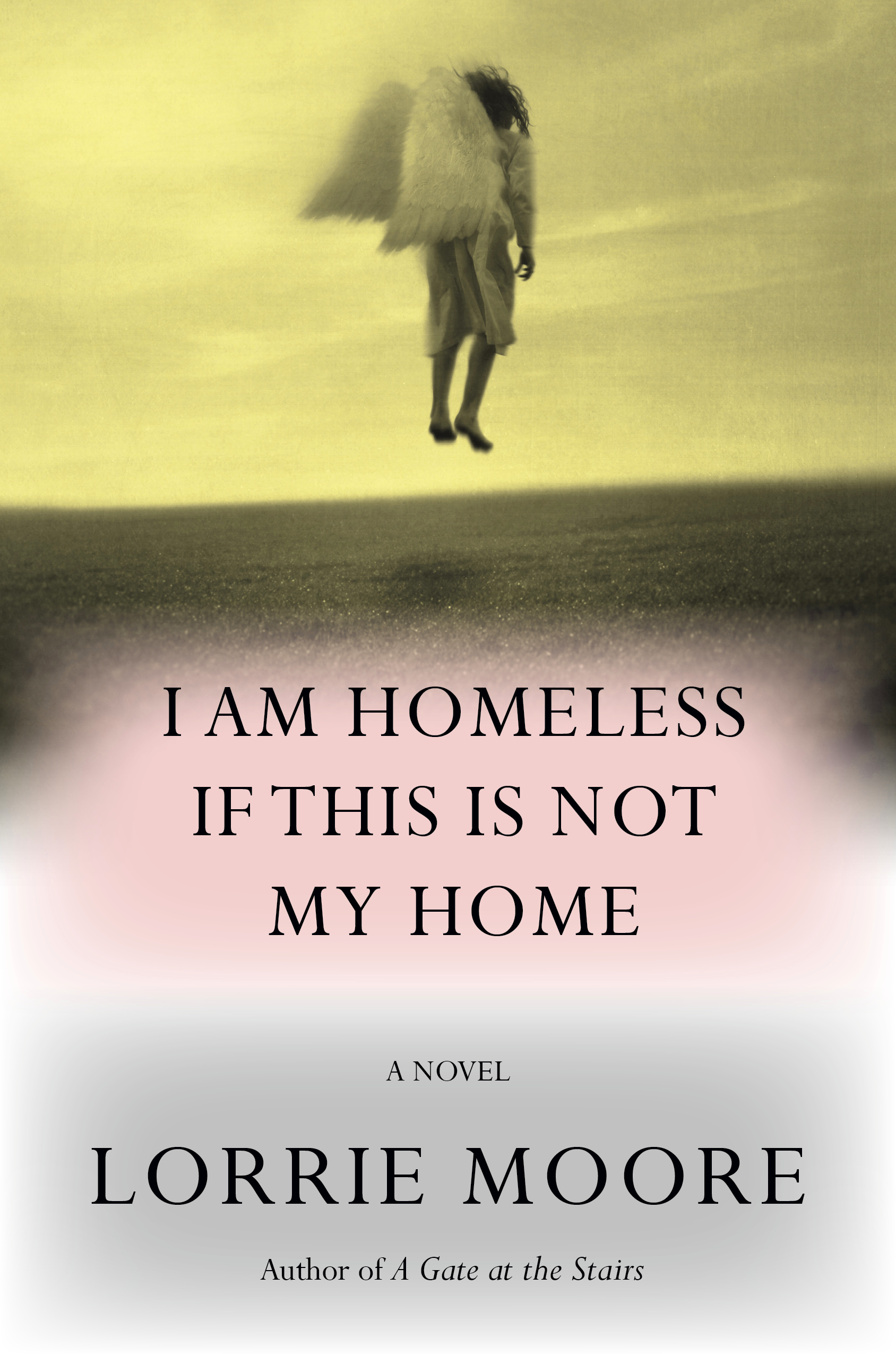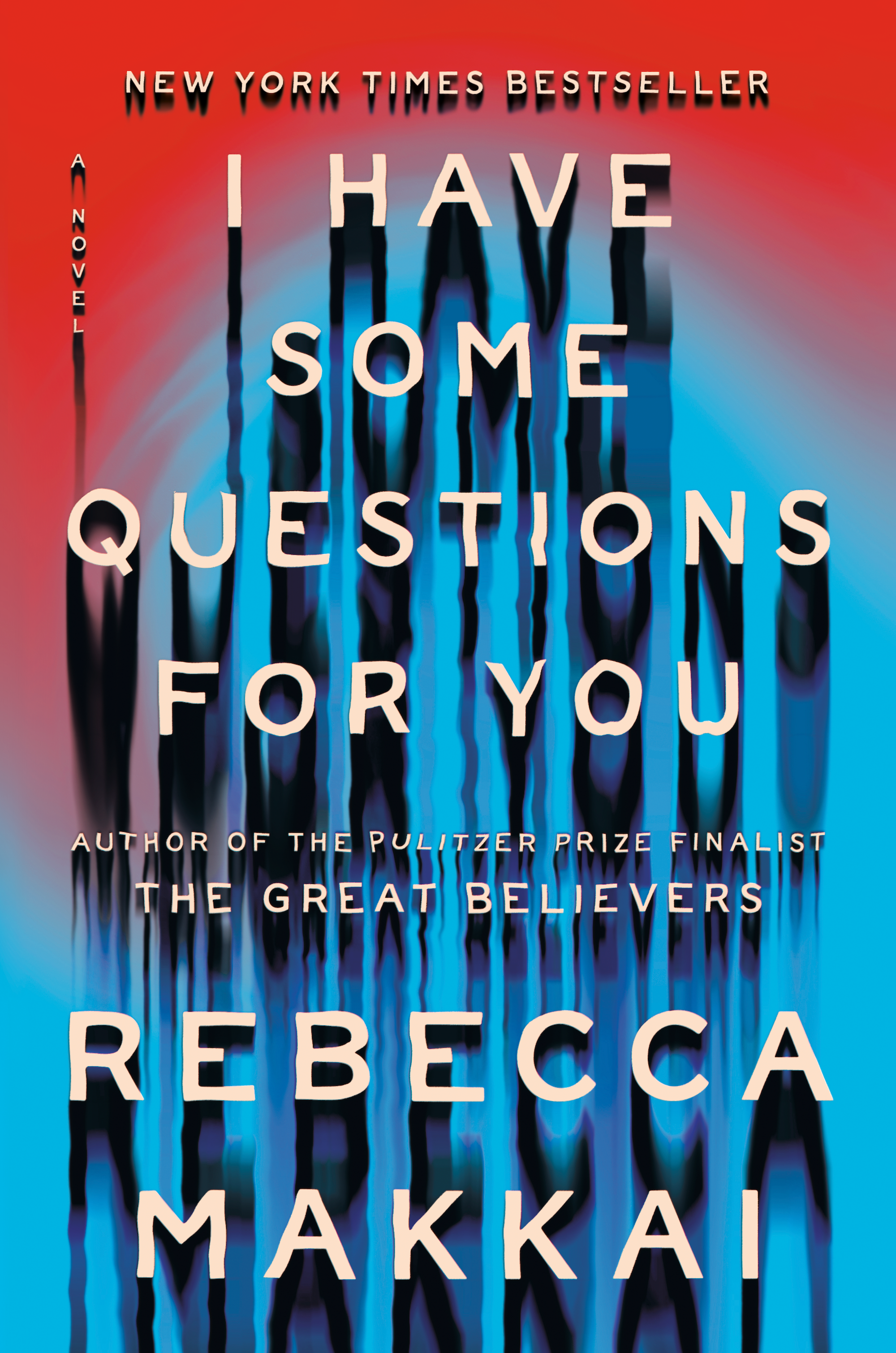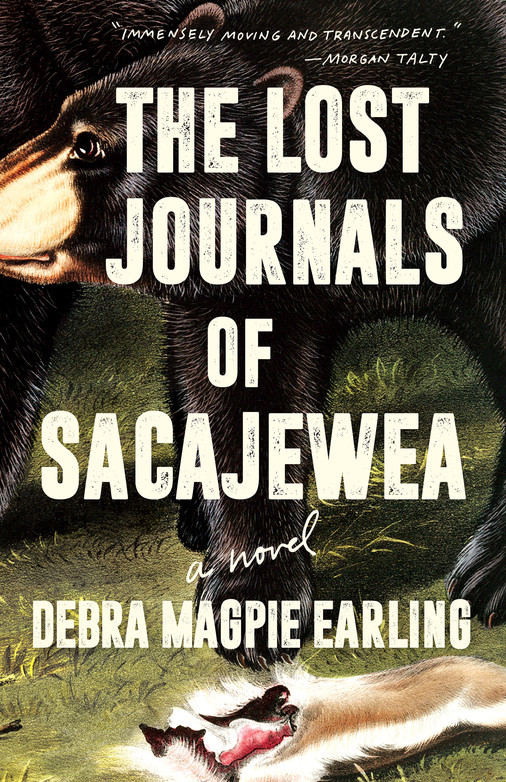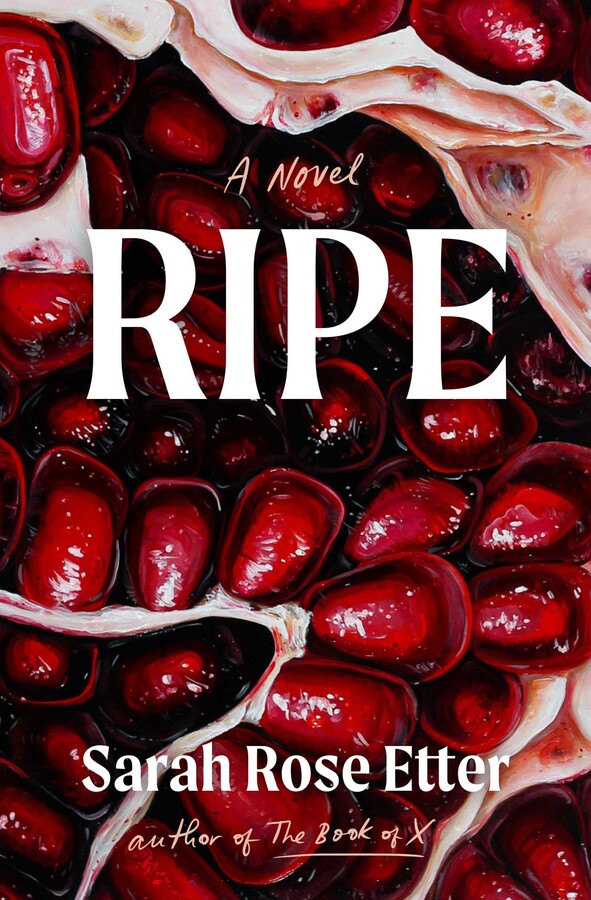Here's what the staff has been reading during these cold, rainy days of early spring.

In the spirit of the season, and because I work on a mountain teeming with wildflowers, my spring picks are various and multiple. I highly recommend Emily Wilson’s translation of the Odyssey. (I decided to reread it alongside my freshman daughter’s first go at the epic.) Book Nine, “A Pirate in a Shepherd’s Cave,” in which Odysseus and his crew are trapped by Polyphemus, reads start to finish like a great thriller, and her translation of the poem’s first line, “Tell me about a complicated man,” echoes throughout the entire story: how Odysseus’s destructive desire for experience on the journey home occasionally puts his crew at risk; how his wartime wounds resonate as doubt and debilitating despair that he will ever return to Ithaca; that he will do anything to get back to his family, even if it puts him in moral hazard.
In the spirit of rereading, I recently returned to F. Scott Fitzgerald’s The Great Gatsby. I found myself newly appreciative of how much it still has to say about the essential aspects of being an American, as well the current moment, when the richest and most powerful in our country seem insulated from consequence: “They were careless people, Tom and Daisy—they smashed up things and creatures and then retreated back into their money or their vast carelessness, or whatever it was that kept them together, and let other people clean up the mess they had made.” Perhaps above all, I was once more amazed by the author’s soaring lyricism, his capacity, with astonishing quickness, to sketch the most vivid and evocative tableaux: “We passed Port Roosevelt, where there was a glimpse of red-belted ocean-going ships, and sped along a cobbled slum lined with the dark, undeserted saloons of the faded gilt nineteen-hundreds.” Is there a greater set piece in American literature than the climatic excursion Daisy, Gatsby, Nick, Jordan, and Tom take into New York City on a blisteringly hot day?
A similar sense of grief and loss, of the cost to our souls when we live in a society founded on structural racism, is shot through Terrance Hayes’s relentless collection American Sonnets for My Past and Future Assassin. Of all his books I’ve read, this collection strikes a balance between his virtuosic formalism and an emotional openness, a vulnerability, that is shattering. In this sonnet, for instance, where it seems the speaker’s mother and lover are locked in an agon for the beloved’s loyalty and attention, and the assassin might be the person in the mirror, shooting himself in the heart:
My mother says I am beautiful inside
And out. But my lover never believed it.
My lover never believed I held her name
In my mouth. My mother calls me her silver
Bullet. Her mercy pill, the metal along her spine.
I am my mother’s bewildered shadow.
My lover’s bewildering shadow is mine.
I have wept listening to a terrible bewildering
Music break over & through & break down
A black woman’s voice. I talk to myself
Like her sister. Assassin, you are a mystery
To me, I say to my reflection sometimes.
You are beautiful because of your sadness, but
You would be more beautiful without your fear.
Finally, I urge you to preorder Lorrie Moore’s novel “I Am Homeless If This Is Not My Home,” which will be in stores this June. (And stay tuned for regular contributor Justin Taylor’s upcoming review.) It is an unfortunate fact that we grow accustomed to an artist as great as Moore, so that we forget, with each book, how enormously rewarding and entertaining she is, how hilarious she can be. Yes, the novel is passing strange. Yes, its plot alternates between a nineteenth-century boarding house owner who may be housing an on-the-lamb John Wilkes Booth and a hapless, present-day school teacher, Finn, who is driving the reanimated corpse of his recently deceased wife, Lily, from the northeast to the University of Tennessee Knoxville’s Forensic Anthropology Center (also known as the Body Farm, where unburied, decomposing bodies are subjects of study). No problem with suspension of disbelief here, and so much wisdom offered in a novel so short:
Finn was pathetically, pathologically drawn to Lily’s richly bleak disposition. Perhaps because heterosexuality in general was looking a little doomed he embraced the doom, the hormonal override of common sense. It seemed amazing, given everything, that men and women could love one another in any way whatsoever. So when it was managed—when it existed here and there in all its precariousness—was that not a beautiful bit of ruin? Everyone was always a little maddened by love because love was either hesitant or overpowering. It was never properly calibrated. It was an aggravation. It was not meticulously directed, which is perhaps why she had strayed.
Enjoy the bouquet.
—Adam Ross, Editor

Rebecca Makkai’s latest, the campus novel x murder mystery I Have Some Questions for You, intrigued me from the jump, largely because of my own experience with the moneyed, hormonal petri dish of too-smart kids that is private high school. Typically I avoid thrillers and procedurals (I prefer reading to lower my cortisol levels, not raise them), but in addition to the boarding-school setting, I wanted to know how Makkai might utilize genre-fiction tropes to buttress the novel’s thematic concerns—the obscured politics of the whodunnit made central.
The novel begins when C-list true-crime podcaster Bodie Cane returns to her alma mater, the Granby School, to teach for a mini semester in January. Bodie’s reunion with campus is complicated by a desire to reexamine her memories of place, and in particular, the narratives she has both constructed and deconstructed surrounding the murder of her senior-year roommate. Twenty-three years have passed since Thalia Keith’s death, but Bodie’s students—tenderly rendered, social justice-minded Gen-Zers—justify Bodie’s preoccupation with the past. One student, Brit, is drawn to Thalia’s murder as the subject of her class project, prompting Bodie to obey her unspoken urge and revisit the case: “It was like being a child in an audience as the magician asked for volunteers, utterly terrified he’d pick you but also thrilled he might. Whether I could admit it or not, I wanted this girl to look directly at Thalia’s death in a way I myself couldn’t.”
Despite a lack of evidence, Omar Evans, the school’s athletic trainer and a Black man, was convicted for Thalia’s murder. Through Bodie, Makkai introduces her own line of questioning, unfurling around this point: How has the justice system changed over the past twenty-five years, and how do racism and bias continue to influence trial outcomes? Why is it that while women are more likely to be killed by someone they know, potentially indicative cases of abuse and assault often go ignored? What level of misconduct necessitates canceling, or should we be endorsing cancel culture at all? Is true crime media ethical? Of her podcast subjects, Bodie describes:
I have opinions about their deaths, ones I’m not entitled to. I’m queasy, at the same time, about the way they’ve become public property, subject to the collective imagination. I’m queasy about the fact that the women whose deaths I dwell on are mostly beautiful and well-off. That most of them were young, as we prefer our sacrificial lambs. That I’m not alone in my fixations.
As Makkai presents the details of the case, I began to identify her strategy. Simply put, the novel is one you can’t put down, designed to enthrall readers through suspense, false leads, possible suspects and motives. By no means am I suggesting Makkai is deceptive, but the comfort and familiarity of these genre conventions certainly cushion Makkai’s punchier claims, engaging a broader readership and offering a more approachable entry point to material more often featured in New Yorker essays or dissected in liberal arts classrooms. Personally, I’d have preferred Makkai afford some of these points more real estate—I found the Twitter callout and subsequent cancellation of Bodie’s artist ex-husband fascinating—but by and large, Makkai’s balancing act is brilliantly executed.
I Have Some Question for You is both juicy page-turner and shrewd sociocultural analysis, but the novel’s constant undercurrent is Makkai’s perfected first-person perspective. Makkai writes Bodie’s interiority as if comprised of thoughts you believed to be yours alone, lovely insights about adolescence and nostalgia that bolster both the novel’s suspense and its commentary on cultural anxieties of mass incarceration and violence against women. For all the detective work—secret codes, meetings in the woods, a pool in a dark gym—Makkai manages to interrogate the most universal question of all: what it means to do the right thing.
—Hayden Dunbar, Assistant Editor

The most remarkable thing about Debra Magpie Earling’s second novel, The Lost Journals of Sacajewea, is how uncompromising it is in its vision of a precolonial consciousness. That is to say, a perspective of reality independent of Western ideas of the self as a vessel for power and of the narrative as striving for ultimate truth. The majority of the narrative takes place before Sacajewea’s encounter and travels with Lewis and Clark, and even when they first appear, they do so in an offhanded way. For once, they are on the periphery of her story.
Instead of lingering on the “explorers,” Earling begins her novel with the Shoshoni Tribe, and then shifts her focus to the Mandan Tribe as Sacajewea is stolen away and grows up. There is nothing idyllic about Sacajewea’s life before the white men came: she faces overwhelming violence—usually sexual in nature—from her own tribe, as well as Enemy Warriors (rival tribes), Stone Ogres (river-dwelling abductors), and the colonizers traveling west. It’s a deeply unsettling narrative, but Earling’s prose is so direct and commanding that I could feel the weight of importance in every line, calling me to continue. In this passage, Sacajewea recounts the night she and another woman from her tribe were assaulted and abducted:
Otter Woman was tied to the back of another Enemy Horse, her body limp, still as Deer meat. Her head bled a River down Horse’s side. I heard others crying. I tried to kick off Horse but was bound by Enemy fists.”
Through Sacajewea’s voice, Earling rejects traditional English narrative forms as well as the sanitized version of westward expansion. Sacajewea’s words never delineate between her mind and her body, between people and the natural world around her, between the present and the eternal, between prose and poetry—dualities westerners and Western literature take for granted. As a result, the novel records a life story that at once feels representative of the historical violence indigenous women have faced and survived, but also a life story burdened by a place in popular history that is not Sacajewea’s, was never meant to be hers. For half of the book, Sacajewea struggles to resist narrative expectation, which is part of how miraculously Earling creates an inner personhood incongruent with western conceptions of the individual. It is admittedly difficult to explain, because we now are socially caught in a much stricter idea of who we are and what that means. But Earling gives fluidity in one’s body, in one’s place in society, in one’s place in the natural world, that many Americans cannot fathom. And that includes how all those relationships factor into stories. In this scene when she returns to the Shoshoni after many years, Sacajewea hears the Old Woman of her tribe and her story, as well as her beliefs about stories:
Old Woman’s mirrors begin to glitter, to twitch with stories, to shine with voices
Do not trust anyone who tells you you cannot tell your story.
Do not trust anyone who tells you there is only one story.
If there were only one story
Or one way of seeing things all stories would die.
In Earling’s telling, Sacajewea’s story refuses to conform to expectations—historical, literary, or otherwise. There is a way of reading the novel as a contradiction to itself; it’s a historical novel about everything that history leaves out of the story. But in pursing this project, Earling creates a historical counternarrative that centers precolonial consciousness, in order for it to explore what these dualities mean for stories and histories—if there is a significant difference between the two.
—Carlos Zayas-Pons, Editorial Assistant

I’m tempted by rich people and their violet-white teeth, the words that drop from their lips with ease: our house in Montauk, concierge medicine, vesting stock. I imagine the shimmering lure of an anglerfish and its hungry mouth. Sarah Rose Etter’s new novel Ripe, which will be available in July from Scribner, asks us to reckon with the self-sacrifice required in order to taste these seemingly impossible fruits. The upshot of this endeavor is a tremendous story, one fraught with corporate greed and worsened by a collapsing cityscape.
Cassie, the novel’s tentative protagonist, works at VOYAGER, a Silicon Valley startup lauded for its innovative data-collection technology. Her marketing position flattens consumers to a series of zeroes and ones, but at least she’s aware of this depravity: “I don’t care what we do or whom we destroy. My father says capitalism is a chess match.” Cassie allows guilt to linger like the post-nasal drip of coke in her throat. Both are terrible and both fuel her bursts of productivity, which results in an otherwise earnest value system that is smothered by C-level executives and their incessant demands.
Cassie’s narration of her life in San Francisco is punctuated by shit-smeared sidewalks and housing protests; cops in riot gear who spray rubber bullets and long swaths of tent cities that provide a guardrail for the Valley’s elite. The rent is high and will continue to fly even higher (Cassie pays $3,000 a month but lies to her coworkers, I got this apartment for a steal). Her daily commute is all gray light and doomscrolling—headlines encapsulate the enduring wildfires, a strange virus abroad, data security breaches that may or may not have been funded by her employer. Her peers’ behavior smacks of cult status, where they chirp about all-natural lunch buffets and weekends spent behind a desk, throngs of employees donning puffer jackets and quarter-zips as if differentiating between military ranks. Here Etter treads a fine line between gothic horror and dystopian fiction, snaring Cassie somewhere between our own lived reality and an uncanny, colorless future that is closer than it may seem. Early on, Cassie waits for transit employees to clean off the tracks after someone throws himself in front of an oncoming train:
Each time it happens, I can’t help but envision the bodies: shredded by the velocity and sheer mass of the trains, their blood seeping under the tracks and into the earth. I wonder what their last thoughts were.
The novel spins out like an encyclopedic study, comprised of several sections informed by the layers of a fruit (exocarp, mesocarp, membrane, etc.) and enhanced by Etter’s willingness to play with narrative form. Words such as friendship, ergosphere, or motivation are followed by dictionary-like entries; entire sections are told through exempli gratia. By doing so, Etter generates a near scientific study of inhuman corporate capability that is made fruitful through subverting our lived age of too much information and far too much influence.
All the while, Cassie is faced with a black hole—not quite literal but also not really symbolic—that has loomed like a watchful eye since childhood:
The black hole hovers above the empty seat to my left. A dark heat emanates from its center. . . . No one else can see the black hole. It is mine and mine alone. It always has been.
It’s a crude amalgamation of Cassie’s depression, instability wrought by years of stress, corporeal dread, and an animal need to leave her past behind. Etter is at her best when carving firm lines around this anguish, a relentless haunting that articulates the pure horror of having a body and licensing others to own it. Etter’s prose affords a tone that exacts and tantalizes at once, oscillating between the tyranny of the demands Cassie makes for herself versus the demands a commercial entity is willing to place upon her. This panoptic anxiety is thus kept at a distance and also centered entirely; one might imagine the slow turn of a screw clamped around Cassie’s psyche. Etter blends such Jamesian sensibilities with the stark white glaze of late capitalism, outlining a distinctly American project whose workforce is already writhing in the belly of the beast—swallowed whole and no different from livestock. The empire of numbers reigns supreme. The end of a life is no different from the close of a trading session. Perhaps, Etter seems to suggest, we’ve already arrived.
—Luke Gair, Assistant Editor
